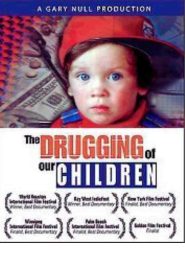War on Health (2012)
War on Health: The FDA’s Cult of Tyranny is a documentary that shines a spotlight on the U.S. Food and Drug Administration (FDA) and its role within the current medical landscape. Released in 2012, the film delves into the complexities of our health system, exposing critical issues and advocating for a more holistic approach.
Here are the key takeaways from this eye-opening documentary:
- The FDA’s Position and Influence:
- War on Health investigates the FDA’s position as a regulatory body. It questions whether the FDA truly serves the public interest or if it has become a tool of big business.
- The film highlights the FDA’s role in shaping medical practices, drug approvals, and the availability of supplements and herbs.
- Injuries and Deaths Due to Conventional Medicine:
- Statistical evidence presented in the documentary reveals that hundreds of thousands of injuries and deaths occur due to conventional medicine.
- The lack of effective oversight by the FDA contributes to these adverse outcomes.
- Supplements, Foods, and Herbs Under Threat:
- The FDA’s attempts to categorize important supplements, foods, and herbs as drugs raise concerns. The agency claims that these natural remedies have healing effects and should be regulated accordingly.
- This perceived war on health threatens access to vital supplements and alternative therapies.
- Broken American Medical System:
- The film asserts that the American medical system is flawed. It calls for a new direction—one that prioritizes democracy and the rights of individuals.
- By challenging the status quo, War on Health advocates for a more people-centric approach to healthcare.
- Gary Null’s Advocacy:
- The documentary is spearheaded by Gary Null, a film producer and health activist. Null exposes the FDA’s shortcomings and its alignment with corporate interests.
- His work encourages viewers to question authority and seek alternative paths to well-being.
In summary, War on Health: The FDA’s Cult of Tyranny serves as a wake-up call, urging us to critically examine the institutions that shape our health choices. It prompts us to consider a future where transparency, empowerment, and holistic health take center stage.




